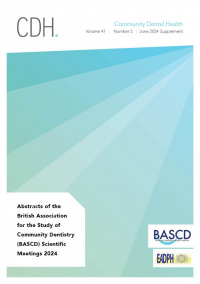December 2012
A description of oral health in three French jails
Abstract
Prisoners display many features suggestive of a higher risk of poorer oral health than the general population. They have many risk factors: disadvantaged social background, consumption of psychoactive substances and a high proportion of persons with mental illness. The oral health of prisoners is handled by different care providers, such as hospital doctors together with some students, interns, and some dedicated dental practitioners. There are few data describing the outcomes of this activity. Objective: The objective of this descriptive study was to determine the oral health of prisoners in the current care system as observed in three French jails. Participants: 84 male prisoners were allocated to two subgroups according to the duration of incarceration: a short term group (≤2 years; 31 subjects, mean age: 31 (sd 13) years) and a long term group (>2 years; 53 subjects, mean age: 43 (sd 11) yearss). One investigator performed a semi-guided interview and a dental examination. Main outcome measures: The DMFT index, the Global Oral Health Assessment Index, the number of dental functional units and some specific indicators on mastication were collected. Results: Duration of incarceration explained more variability than age for numbers of missing teeth (26%; p<0.001) and functional units (24%; p<0.001). Long-term prisoners had greater chewing difficulties than short term prisoners. Conclusions: This study suggested that, in the French jails studied, a stable level of oral infection including untreated caries was obtained at the cost of a degraded masticatory function. Key words: dental caries, DMFT index, prisoners, jail, France




